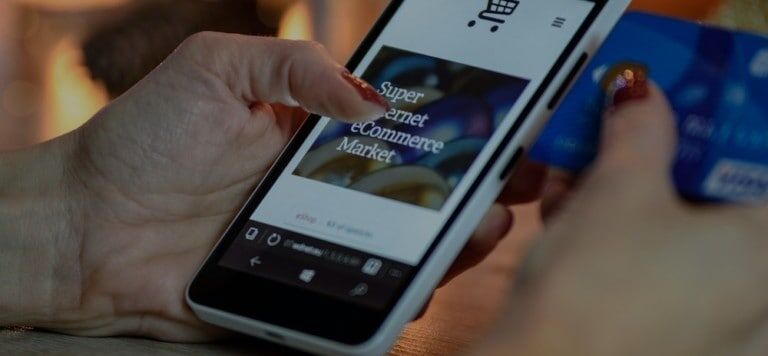Going D2C (direct-to-consumer) is one strategic move that has been key for businesses across different industries since the rise of the pandemic.
by Bernard Kochen, Convious
Adapt or perish. Wouldn’t have that been a great fortune cookie for what 2020 had in store for us? Within the world of leisure and attractions, there’s currently those who are not quite ready to digest it, desperately waiting for things to get back to normal. Then there are those who, on the contrary, are looking ahead and thinking about these challenging times as an opportunity. A chance to reinvent themselves and work on a future-proof transformation within their businesses.
Of course, with the unprecedented shifts and developments that we have witnessed this year due to the pandemic, that’s easier said than done.
However, businesses have managed to come together, collaborate, and think creatively more than ever. But above all, they’ve had to transform the way they operate and do business inside out in order to ensure their survival.
Doing that overnight, especially for an industry which is traditional at scale and has no inherent tech-savvy DNA, is no easy feat. Nevertheless, some businesses have come out stronger from this pandemic.
What is their secret?
Well, of course, pinning it down to one single factor would be a narrow-minded approach of looking at it. There are many things that come into the mix. Having a forward-thinking team, the right organizational resources and technology, structure, and flexibility, or things like making informed decisions proactively through accurate forecasting… they all help.
This slowly rising new eCommerce approach is revolutionizing the way businesses build relationships with their customers and it’s based on the simple premise of selling directly to them
But if we were to pinpoint the one strategic move that has been key for businesses across different industries since the rise of this pandemic? It has to be going direct-to-consumer (or D2C).
A factor that surprisingly, not many people in the industry are talking about – therefore, making it a ‘well-kept secret’ that I’d like to unpack here for more leisure businesses and attractions to start taking advantage of.
This slowly rising new eCommerce approach is revolutionizing the way businesses build relationships with their customers and it’s based on the simple premise of selling directly to them, through their own channels, rather than depending on third party resellers or distributors. It involves letting go of the middleman.
The advantage of a D2C approach
The major advantage within this D2C approach comes down to four letters, one word: Data.
A word that can make some leisure managers instinctively flinch with reluctance. For many, ‘data’ is just that buzz word. It gets thrown around a lot but they can’t picture it very accurately. They know it’s there and they know it’s being used. But they are not very aware of how exactly.
The pandemic has almost erased box office sales and walk-up culture from the leisure map. So every business is shifting online and jumping into the eCommerce wagon. And that has huge implications. Not only in drastically changing consumer behaviour, but more importantly, in the fact that the whole relationship with the customer has had a complete change of scenario.
Now, it leaves a trace. Meaning that those online transactions and interactions bring incredibly valuable data along with them.
By going D2C, leisure and attraction venues can capitalize on that data to gain the following advantages:
- Regain full control over their customer relationships and data.
- Better understand their customers and tailor the communications and experiences accordingly.
- Implement next-level personalization strategies to increase customer loyalty and conversions.
- Better influence buying intent across every single touch-point of their digital customer journey and experience.
- But above all, having continuous incoming streams of data means having information and knowledge. This results in endless opportunities to learn, improve, and scale their business.
All of this translates into the fact that in the face of any future crisis, and even in order to get through what’s left of this pandemic, your leisure brand’s fate is in your hands, and no one else’s. You hold your data. And therefore, you can use it to react in a timely manner. It makes you agile.
Switching to D2C
No wonder that brands like Heinz, Nike, or Lindt, who were previously prioritizing sales through traditional channels and resellers, have also made a quick and strategic move to abandon their old legacy systems and jump headfirst into this direct and data-driven eCommerce approach.
Clearly, more and more brands are starting to become aware of the mouth-watering benefits that going D2C has.
Among other things, D2C brands succeed in narrowing down consumer choices, strengthening their brand reputation, clarifying their value proposition, and streamlining their customer experiences. The rewards in terms of innovation opportunities, creating more meaningful connections, and stronger relationships, as well as influencing and connecting with customers along their whole customer journey are endless.
In the end, “Direct to Consumer” comes down to exactly that; serving your customers directly while enhancing their experience
In the end, “Direct to Consumer” comes down to exactly that; serving your customers directly while enhancing their experience throughout every single touchpoint of their leisure customer journey, with the use of insights extracted from their data.
This eCommerce model is becoming increasingly popular. But it still has a long way to go within the world of leisure and attractions. Therefore, it can offer an interesting competitive advantage to those businesses who decide to consider its early adoption. After all, the world has already shifted online. So the leisure world will have no other choice than to move along with it.
Instead of leaving their brand’s fate in the hands of retailers and third parties who will charge high fees, throw ticket prices, and take over their data, leisure brands can choose to protect themselves in the long run by claiming back control and along with it, their brand’s fate.
